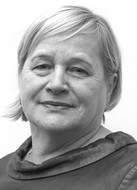Stress control practices for mental balance improvement in academic sports
Фотографии:
ˑ:
Dr.Sc.Psych., Professor O.I. Shcherbakova1
Dr.Sc.Tech., Professor A.K. Chernykh2
PhD, Associate Professor D.A. Balakhanova1
PhD, Associate Professor V.O. Midova1
1Plekhanov Russian University of Economics, Moscow
2St. Petersburg Military Institute of National Guard Troops of the Russian Federation, St. Petersburg
The study gives a special priority to the still underexplored issues of stress tolerance and stressors in the modern academic sports in the context of the relevant psychological theory and practices, for the mental balance control purposes.
Nowadays it is common knowledge that the stress test, prevention and mitigation issues are critically important for success in sports, particularly in the emotionally intensive sport disciplines that imply multiple interpersonal contacts. A special priority shall be given to the early stress tests by a variety of stress test methods and tools to rate individual stress exposures and apply, on a timely basis, the most efficient stress mitigation and tolerance building policies and practices. Subject to the stress typing and rating tests under the study was a group of academic athletes, followed by the tests of a stress control model of the authors’ own design including the special stress control and mitigation practices to efficiently build up individual stress tolerance systems.
Keywords: stress, stress conditions, mental conditioning, emotionality control, behavioral control tools.
References
- Sivil Jeanie Stress-menedzhment [Stress management]. Transl. from Engl.. Moscow, 2006.
- Zavizion M., Légeron P. Kakoy stress vy ispytyvaete? [What stress are you experiencing?]. Psikhologiya, 2017, no. 17, pp. 27–31.у
- Zarakovsky G.M. Psikhofiziologicheskiy analiz trudovoy deyatelnosti [Psychophysiological analysis of labour activity]. Moscow: Nauka publ., 1966.
- Zeer E.F. Psikhologiya professiy. Ucheb. posobie dlya vuzov [Psychology of professions. Textbook for universities]. Moscow: Akademicheskiy proekt publ., 2006, 330 p.
- Ilyin P. Psikhofiziologiya sostoyaniy cheloveka [Psychophysiology of human states]. St. Petersburg: Piter publ., 2005.
- Istratova O.N. Spravochnik psikhologa-konsultanta organizatsii [Reference book of consulting psychologist in organization]. Rostov-on-Don: Fenix publ., 2010, 637 p.
- Karpov A.V. Psikhologiya truda. Uchebnik [Psychology of Labour. Textbook]. Moscow: Yurayt publ., 2011.
- Rybnikov O.N. Psikhofiziologiya professionalnoy deyatelnosti. Uchebnik [Psychophysiology of professional activity. Textbook]. Moscow: Akademiya publ., 2010.
- Khanykov Yu.D. Psikhofiziologiya professionalnoy deyatelnosti. Rabochaya uchebnaya programma [Psychophysiology of professional activity. Work curriculum]. Moscow: ITLP publ., 2012, pp. 84–90.
- Cheremisina N. A. Stress i stress-menedzhment v deyatelnosti rukovoditelya [Stress and stress management in director’s work]. Spravochnik rukovoditelya uchrezhdeniya kultury, 2012, no. 4.




 Журнал "THEORY AND PRACTICE
Журнал "THEORY AND PRACTICE